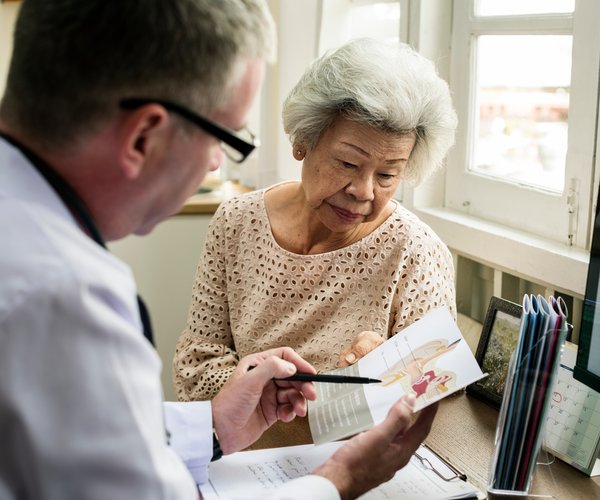Healthcare disparities are a pressing issue in the United States, with the Asian Pacific Islander (API) community facing unique challenges due to their cultural, linguistic, and socioeconomic diversity. To address these disparities and promote health equity, a comprehensive approach must be taken to understand the specific factors contributing to these disparities and implement innovative strategies and initiatives. I’d like to delve deeper into the factors contributing to healthcare disparities in the API community and explore a few approaches to tackle these challenges.
Factors Contributing to Healthcare Disparities
The API community encompasses individuals from over 50 countries, speaking more than 100 languages, and practicing various cultural and religious traditions. This rich diversity contributes to the range of healthcare challenges and disparities they face. Here are just a few factors that contribute significantly to healthcare disparities in the API community:

- Language barriers: Limited English proficiency (LEP) is a common issue for many API individuals. LEP can lead to misunderstandings in health information, communication difficulties with healthcare providers, and challenges navigating the healthcare system. Often as a result, LEP individuals may receive lower quality care or avoid seeking care altogether.
- Cultural factors: Cultural beliefs and practices significantly influence health behaviors and attitudes in the API community. For example, some API individuals may prioritize traditional or alternative medicine over conventional medical treatments, leading to delayed diagnoses or suboptimal management of chronic conditions. Additionally, cultural taboos and stigma around mental health or certain illnesses may prevent individuals from seeking help.
- Socioeconomic status: Low-income API individuals often lack access to affordable healthcare, resulting in limited access to preventive services, inadequate disease management, and higher rates of preventable illnesses. Furthermore, income disparities and educational attainment levels may exacerbate healthcare access challenges.
- Stigma and discrimination: API individuals may experience discrimination within the healthcare system, leading to negative healthcare experiences and potentially exacerbating health disparities. Implicit biases among healthcare providers may also affect the quality of care received by API patients.

Innovative Strategies and Initiatives
To comprehensively address the challenges and promote health equity in the API community, healthcare providers and policymakers should consider implementing new strategies and initiatives, such as:
- Culturally competent care: Healthcare providers should undergo comprehensive cultural competence training to better understand the unique needs of the API community. This training should include recognizing cultural beliefs and practices, addressing language barriers, and providing tailored health education. Additionally, incorporating diverse staff, including API healthcare professionals, can enhance cultural competence and improve patient-provider relationships.
- Expanding access to language services: Healthcare providers should invest in language services, such as medical interpreters and translated health materials, to facilitate communication between patients and healthcare providers. Telehealth services can also be leveraged to connect LEP patients with language-concordant providers, further improving access to care.
- Community outreach programs: Targeted outreach programs can help raise awareness about specific health issues in the API community, increase access to preventive services, and reduce stigma associated with certain conditions. These programs should be tailored to the unique needs of different API subgroups and involve collaboration with community leaders and trusted organizations.
- Collaboration with community-based organizations (CBOs): Partnering with CBOs can help healthcare providers better understand the needs of the API community, enhance trust between patients and providers, and improve healthcare access and outcomes. CBOs can serve as liaisons between healthcare providers and the community, facilitate patient navigation services, and provide culturally sensitive health education.
- Health policy and advocacy: Advocacy efforts should focus on promoting health equity for the API community, including expanding access to affordable healthcare, addressing social determinants of health, and pushing for anti-discrimination policies in the healthcare system. Policymakers should also consider disaggregating health data by API subgroups to better understand and address the unique health disparities affecting each group. This will enable more targeted interventions and resource allocation.
- Technology-based interventions: Utilizing technology, such as mobile health apps and online platforms, can help address healthcare disparities in the API community by providing health information, facilitating communication with healthcare providers, and improving access to care. These tools should be culturally and linguistically tailored to meet the unique needs of the API community.
- Workforce development: Expanding the diversity of the healthcare workforce, particularly among API professionals, can help improve cultural competence within the healthcare system and foster better patient-provider relationships. Encouraging API individuals to pursue careers in healthcare through mentorship programs, scholarships, and targeted recruitment efforts can contribute to a more diverse and culturally competent healthcare workforce.

Addressing healthcare disparities in the Asian Pacific Islander community requires a comprehensive approach that acknowledges the unique cultural, linguistic, and socioeconomic factors at play. By implementing innovative strategies and initiatives, healthcare providers and policymakers can help bridge these gaps, promote health equity, and ultimately improve the overall well-being of the API community. Collaboration among healthcare providers, community organizations, and policymakers is essential to ensure that every member of the API community has access to quality healthcare services, regardless of their background or circumstances.
Greg Wolfson is the CEO and Owner of Borderline Media Company, providing full service digital marketing, branding, design, and video production services for both private and government clients. As a proud Filipino-American, Gregory is strongly influenced by the stories and work ethic of his mother, a first-generation immigrant from the Philippines. In order to promote diversity and inclusion, Gregory currently participates in multiple D.C. Area Asian Pacific Islander business organizations.
Reach Out
Ready to start your next project? Have a question about one of our services? Get in touch with one of our producers and we will be happy to assist you. We're excited to hear from you!

